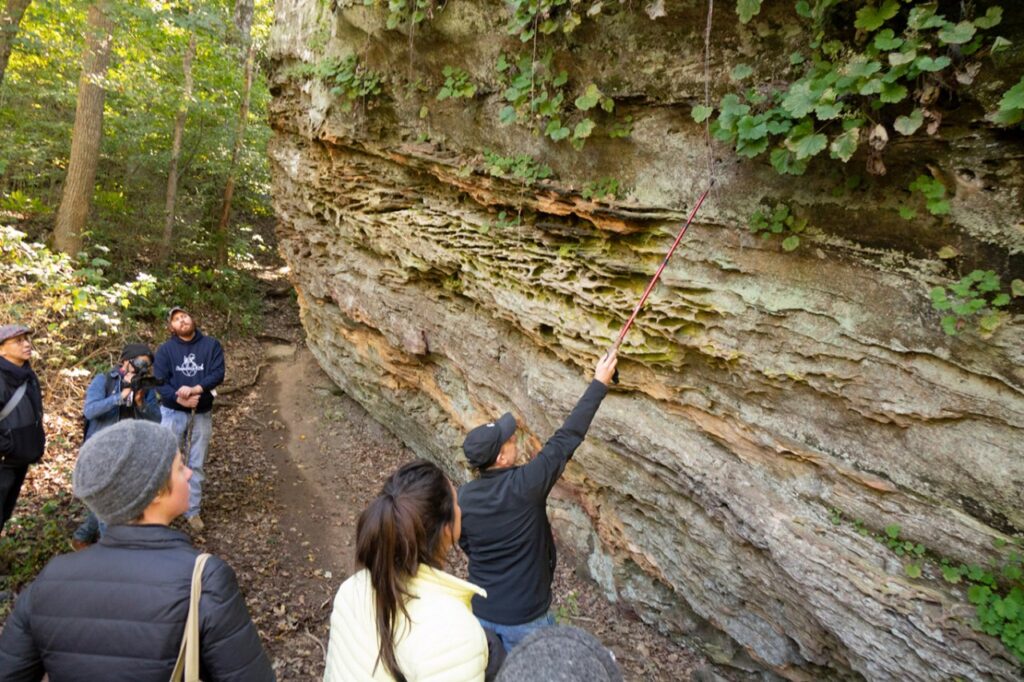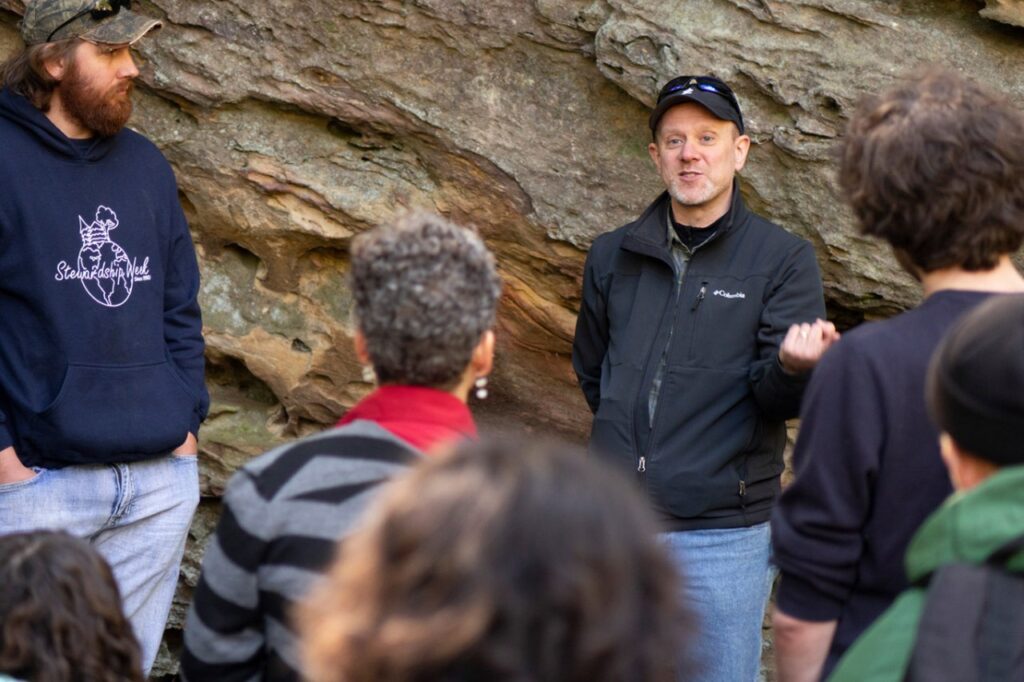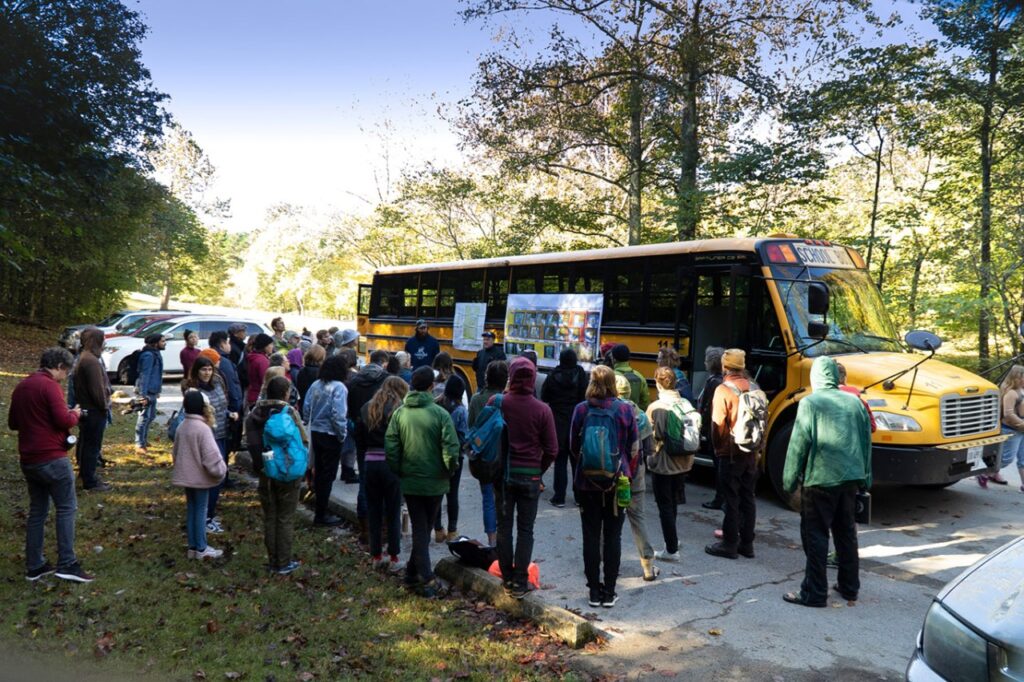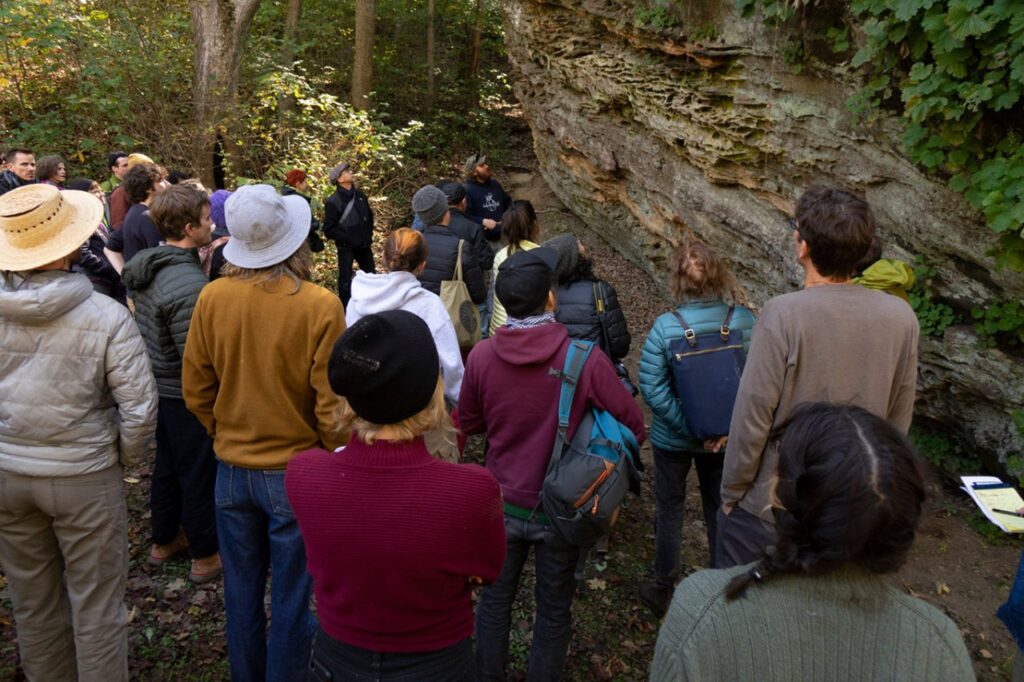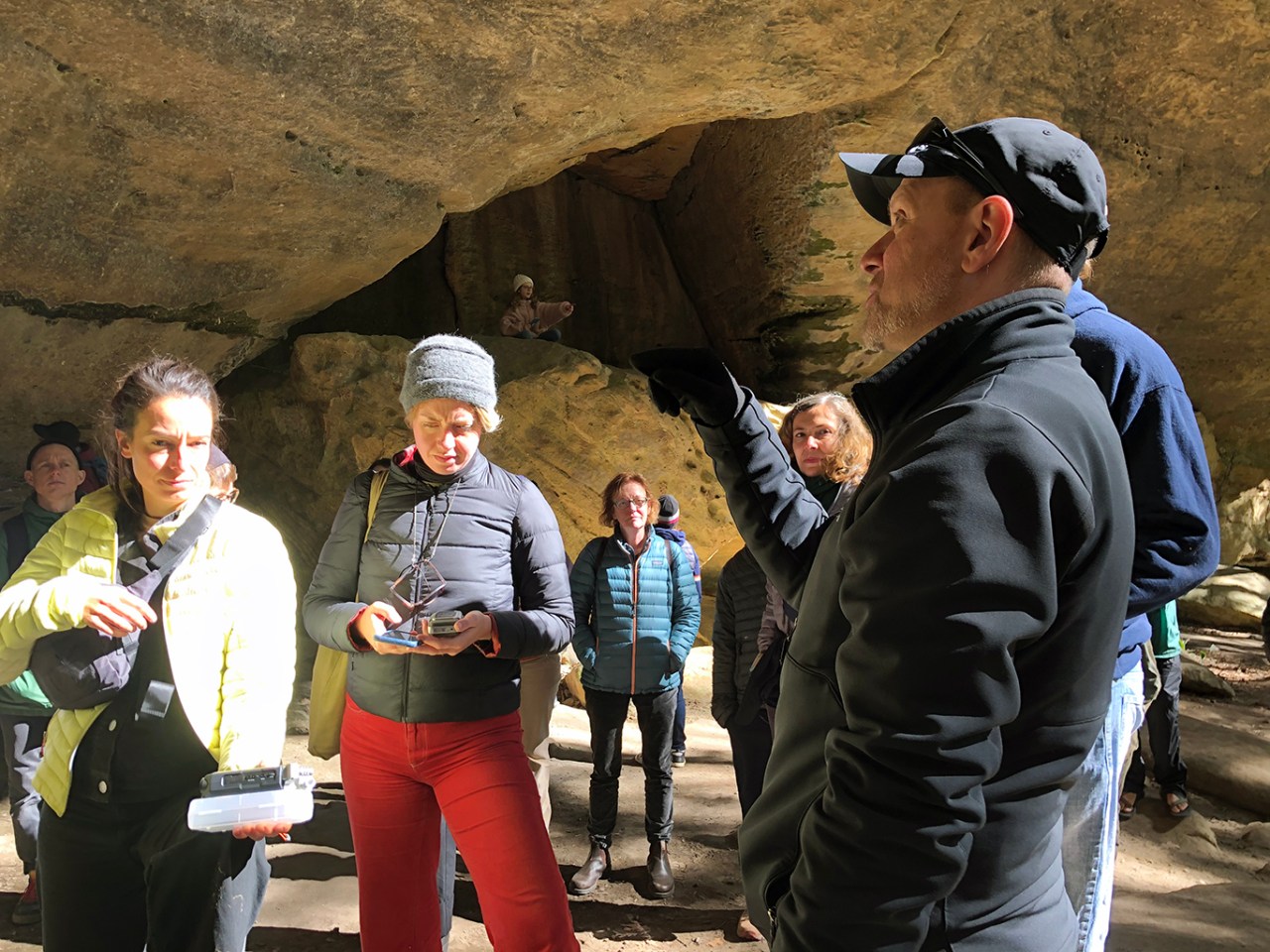Carboniferous Walk-About-It, 2019
Ferne Clyffe State Park, Goreville, IL
Field Station 4: Mississippi. An Anthropocene River
As part of Field Station 4, the Carboniferous Walk-About-It, was an example of one of Deep Time Chicago’s regular strategies, acknowledging that the Anthropocene calls for first person science, where we may derive abstract theorems from lived experience. On the second day of the three-day Field Station gathering, forty plus people filed out of an iconic yellow school bus, a mobile steel-body made ambulant through the combustion of fossilized plants and animals (oil and gas) that lived and died between 10 and 180 million years ago. We stepped onto ground that was located just south of the equator 300 million years ago during the geologic epoch referred to as the Carboniferous.
The five members of Deep Time Chicago who organized this walk, Amber Ginsburg, Claire Pentecost, Kayla Anderson, Sara Black and Sarah Lewison, did so with the intention of creating a provocative and exploratory juxtaposition to their sound and sculptural installation titled Inheritance, presented to the public for the first time the night prior at the Southern Illinois University Museum, part of the Confluence Ecologies exhibition. On the walk we learned from Scott Elrick and Jeremy Breeden, two geologists with the Illinois State Geologic Survey. The fossil forest system that is the subject of Inheritance straddled an ancient river basin that meandered across these lands 300 million years ago. The swampy peat soils from which the now-fossilized forest grew, became the coal seams that have fueled the coal industry of southern Illinois and neighboring states. The fossil forest, a rare picture of a complex ecosystem, was rather rapidly covered over by fluvial sediments during a warming period not fully dissimilar to the one we are experiencing now, this time fueled by anthropogenic intervention. The geology of Ferne Clyffe demonstrates this fluvial geology and locks in stone this 300 million year old story.
